The Power of Organizational Culture: How Sanofi Consumer Healthcare Transformed Employee Experience Through the Challenger Mindset
today2023.04.07. 3226 1

WHY SHOULD YOU CARE?
Organizational culture plays a critical role in shaping employee experience, engagement, and performance. The Sanofi Consumer Healthcare case study provides practical insights into how HR leaders can transform their organizational culture to improve the overall employee experience and achieve business objectives.
Organizational culture impacts every aspect of an organization, including the way employees interact with each other, the level of employee engagement, and the overall performance of the organization. The culture of an organization has a significant impact on employee experience, and it can either make or break the organization’s success.
In this blog post, we will explore the impact of organizational culture on employee experience and how it affects employee engagement, productivity, and performance. We will also examine a case study of Sanofi Consumer Healthcare and its efforts to transform its organizational culture to improve the employee experience.
The Impact of Organizational Culture on Employee Experience:
Organizational culture plays a critical role in shaping the employee experience. A positive and inclusive culture fosters a sense of belonging, which is essential for employee engagement, motivation, and job satisfaction. On the other hand, a toxic culture can cause employees to feel disconnected, unappreciated, and undervalued, which can lead to disengagement and turnover.
The culture of an organization also impacts the way employees work and collaborate with each other. A culture of transparency and open communication fosters teamwork, innovation, and creativity, while a culture of micromanagement and blame can stifle creativity and productivity.
Moreover, organizational culture also affects employee performance. A culture that emphasizes personal growth, learning, and development encourages employees to be more productive, engaged, and proactive. On the other hand, a culture that prioritizes short-term goals over long-term growth can lead to burnout, stress, and lower employee performance.
Sanofi Consumer Healthcare Case Study:

Sanofi Consumer Healthcare is a global healthcare company that aims to become the best fast-moving consumer healthcare company in the world. The company’s leadership recognized that to achieve this vision, they needed to transform their organizational culture to improve employee experience and engagement.
To achieve this, the company defined the key elements of its comprehensive employee-centric communication and engagement plan to drive the business transformation through a cultural evolution: the Challenger Mindset. The Challenger Mindset focuses on fostering a culture of innovation, learning, and collaboration, where employees are encouraged to challenge the status quo and take calculated risks.
Sara Lupi, Global Head of Employee Experience, Consumer Healthcare at Sanofi, explained that the company’s goal was to create a culture that empowers employees to be creative, innovative, and agile. The company invested in employee development programs, including leadership training, mentoring, and coaching, to help employees develop the skills and knowledge needed to succeed in the new culture.
The company also introduced new communication channels to foster open and transparent communication, including regular town hall meetings, feedback sessions, and employee surveys. These efforts have helped to create a sense of belonging, trust, and transparency among employees, which has improved engagement, motivation, and productivity.
In conclusion, it is clear, that organizational culture has a significant impact on employee experience, engagement, and performance. A positive and inclusive culture fosters a sense of belonging and encourages employees to be creative, innovative, and productive. Sanofi Consumer Healthcare’s experience demonstrates the importance of investing in employee development, fostering open communication, and promoting a culture of learning and collaboration to transform organizational culture and improve the employee experience. By doing so, organizations can improve their overall performance and achieve their goals.
Meet Sara at the upcoming Employee Experience Impact Forum in Amsterdam and learn more about how leading organizations achieve a greater level of employee experience via transforming culture.

Written by: Mihaly Nagy
Culture Employee Engagement Employee Experience Strategy & Transformation
Previous post

- 4809
- 1
labelArticles today2023.04.05.
Unlocking the Power of Employee Listening and People Analytics: A Case Study of ABN Amro Bank’s Success in Improving Employee Experience
Why should you care Employee listening and people analytics may drastically help to improve overall employee experience. By analyzing this data, companies can identify trends and areas for improvement, leading [...]
Similar posts

labelArticles today2024.07.24.
AI-Powered HR: Strategic Benefits and Practical Applications

labelArticles today2024.06.24.








Post comments (0)